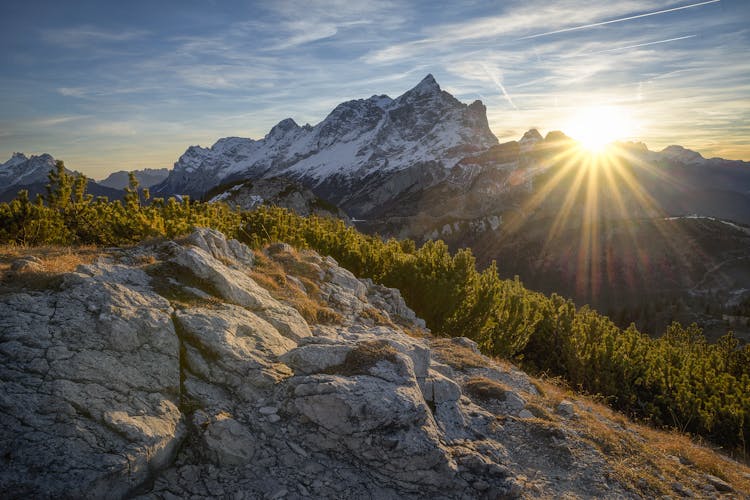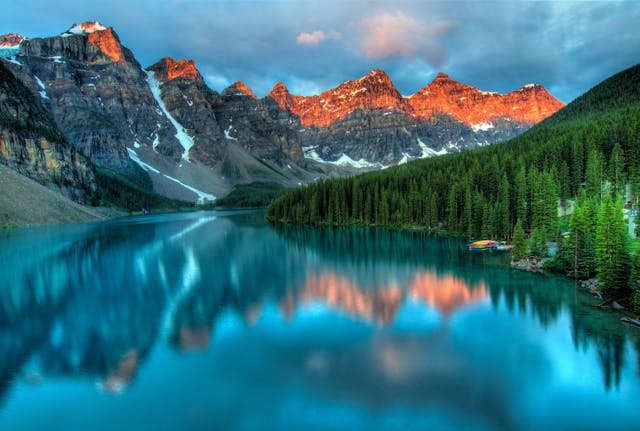
Sometimes, a weekend getaway is all it takes to change the course of your life. Picture this: you’re sitting on the porch of a cozy cabin, sipping coffee while soaking in the peaceful mountain views. It’s just a weekend trip, but something stirs within you. The idea of relocating to the mountains starts as a fleeting thought and quickly becomes a real possibility. Many people find themselves wanting to extend that weekend escape into a lifelong adventure. But what does it really take to make that move?
The Allure of Mountain Living
There’s something magical about mountain living that draws people in. The serenity and beauty of towering peaks, dense forests, and wide-open skies create a perfect escape from city life. Mountain air feels cleaner, crisper, and more refreshing than the air in urban environments. Living in nature offers countless benefits for both mental and physical health. Wildlife, hiking adventures, and the quiet of the wilderness become a part of your daily life.
For many, the pace of mountain life is slower, and that’s exactly what they need. Away from traffic and crowds, there’s space to breathe and reflect. In today’s fast-paced world, the mountains provide an environment to recharge, reconnect with yourself, and find a better balance in life. This natural beauty and calm often make the idea of moving from city life more appealing.

Turning a Weekend Escape into a Permanent Move
What starts as a casual weekend trip can often become the motivation for something bigger. Many people visit the mountains several times before seriously considering a permanent relocation. Each trip strengthens their connection to the landscape and lifestyle. Eventually, the appeal of quiet mornings and breathtaking views becomes too hard to ignore. The next step is turning a temporary escape into a permanent lifestyle change.
Before making the leap, there are key factors to consider. One of the most important is job flexibility. Many who choose to relocate to the mountains have the benefit of remote work. If your job allows it, working from the comfort of a cabin can be ideal. However, if remote work isn’t an option, you’ll need to explore job opportunities in or near the mountains. Financial readiness and discussing the move with your family are also important steps.
Challenges of Mountain Living
While mountain life seems idyllic, it comes with its share of challenges. One of the biggest adjustments is the altitude. Depending on the elevation, you may need time to adapt to the thinner air. Some people experience altitude sickness, which can be uncomfortable for the first few weeks. You’ll also have to prepare for extreme weather, especially in winter. Heavy snowfall and cold temperatures can make life a bit tougher, especially if you’re not used to it.
Isolation is another challenge to consider. While living in the mountains can be peaceful, it also means being farther away from conveniences like grocery stores, healthcare, and schools. The nearest town may be a long drive away. Additionally, planning for road conditions, especially in winter, is important when snow and ice can make a difference. Proper planning is essential when considering relocating to the mountains.

Relocating to the Mountains: Finding Your Dream Mountain Home
Finding the right property is one of the most exciting parts of moving to the mountains. There are various mountain homes to consider, from cozy cabins and rustic chalets to modern houses with all the amenities. One of the first steps is to decide whether you want a remote property or something closer to town. A remote location offers more seclusion and immersion in nature, while a home closer to town provides easier access to services.
When looking for a mountain home, you’ll also need to consider if the property is suitable for year-round living. Does it have proper insulation for winter months? Is the water supply reliable? Will you need to modify to ensure the home is energy-efficient and self-sustaining? Working with a real estate agent specializing in mountain properties can help you find the perfect home and avoid potential issues.
Settling into Mountain Life
Once you’ve made the big move, it’s important to settle into your new place and embrace your new lifestyle. There are many things to do after moving into a new house. Begin by exploring your surroundings—hiking the nearby trails, visiting local parks, or simply enjoying the mountain views from your porch. Introduce yourself to neighbors and attend community events or local farmers’ markets, which can help you build connections in your new town. Personalizing your home is another important step. Decorate your space with rustic touches or items that remind you of why you chose mountain living in the first place. Add cozy elements like warm blankets, fireplaces, and comfortable seating to make your new home a sanctuary. As you gradually adjust to the slower pace of mountain life, you’ll find that embracing these small steps will help you feel more grounded and at peace in your new environment.
The Impact of Mountain Living on Mental Well-Being
Living in the mountains has a profound impact on your mental health. Something is calming about being surrounded by nature and away from the noise of city life. Studies have shown that spending time in nature reduces stress, anxiety, and depression. When you move to the mountains, these mental health benefits become a part of your everyday life.
The constant access to fresh air, quiet surroundings, and open spaces can help you become more mindful and in tune with your thoughts. You may sleep better, have more energy, and feel more centered. Many who relocate to the mountains speak of a sense of peace they hadn’t experienced before. This improved well-being is one of the main reasons people choose to make mountain life their new reality.

Final Considerations Before Relocating
Before you pack up and move, it’s important to consider some final details. One of the best things you can do is visit the mountains during different seasons. This will give you a full understanding of what year-round living is like. Experiencing the mountains in both winter and summer will help you prepare for what lies ahead. Financial planning is also crucial. Due to weather conditions, mountain homes often require extra maintenance, so budgeting is key.
Finally, make sure to create a plan for transitioning smoothly. Whether arranging for movers or setting up utilities, careful planning will make the move much easier. This final preparation ensures that your transition to mountain life goes as smoothly as possible.
Conclusion
Relocating to the mountains is a life-changing decision that starts with a simple weekend escape. While there are challenges, the rewards are plentiful. From the beauty of nature to the peace and calm it brings, mountain living offers a fresh start for those seeking change. If you’ve been dreaming of moving, start by planning a trip. Who knows? You might just find yourself relocating to the mountains sooner than you think.